Mdou Moctar: “My intention is for the guitar to be spitting out the sound of revolution”
In conversation with Niger’s ‘Hendrix of the Sahara’
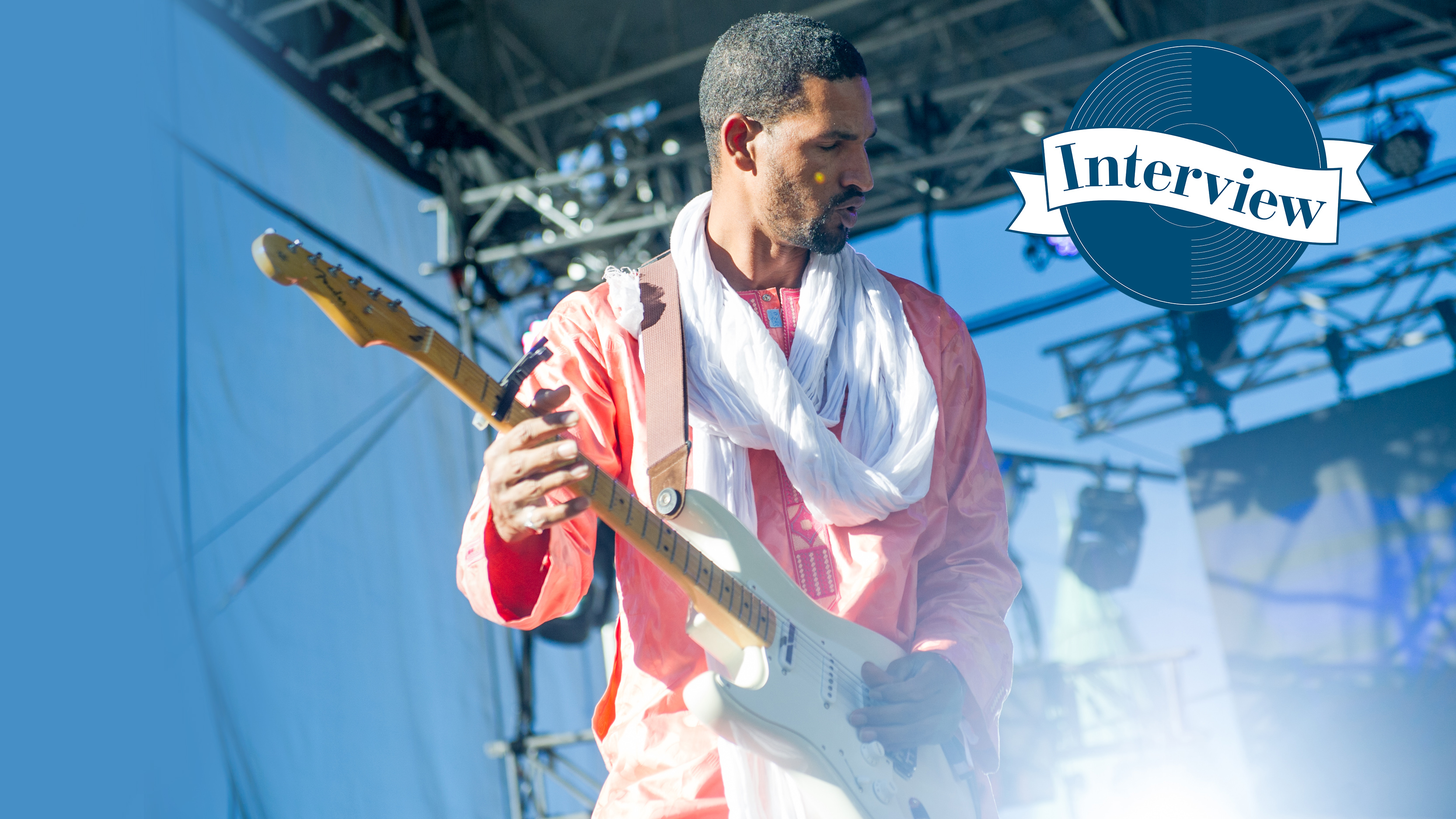
Niger guitarist Mdou Moctar’s playing is a shape-shifting riot of colour, evolving rhythms and lush melody. It is a reminder of the infinite possibilities that come from playing the electric guitar and an antidote to any player stuck trying to squeeze fresh blood from the same rusty pentatonic shapes and dull rock cliches.
His joyful contemporary fingerstyle playing blends the desert blues and Tuareg guitar styles with Western rock, psychedelia and jazz elements and if you haven’t heard it, you should. The consensus that is slowly forming is that he is not just one of the leading exponents of Sahel (Sub-Saharan) guitar music, but one of the finest and certainly most expressive, guitarists in the world.
His last record Ilana (The Creator) was the excoriating result of this cross-cultural embrace. Recorded in the US, it took you on a blistering psych rock ride from the Niger desert, past the Mississippi Delta before dipping its toes in the sun-kissed oceans of the West Coast. Now he’s returned with Afrique Victime, an album that attempts to bottle the extremes of Moctar’s feelings for his homeland and the wider African continent. From addressing the suffering it continues to endure amid the fallout of empires and political instability, to moments of tender contentment amid loved ones and his home in the Agadez region.
As such, Afrique Victime captures his most ambitious, powerful playing yet (the astonishing Van Halen-esque solo of the title track, for example), but also some of his subtlest (the touching Tala Tannam), as he incorporates more of the acoustic work honed prior to Ilana.
We spoke to Moctar about the statement he is making with Afrique Victime, the power of music in communicating with the world and what he makes of rock’s drink and drugs culture.
This interview was conducted via a translator.
Afrique Victime has been described as your “most directly political” album to date. You have discussed some of Niger’s complex political challenges before. When and how did it become apparent to you that this would be a big theme of this particular record? And why now?
Get the MusicRadar Newsletter
Want all the hottest music and gear news, reviews, deals, features and more, direct to your inbox? Sign up here.
“As I have mentioned in previous interviews, I'm really inspired by what's around me to write what I see in nature, and of course, by recent events that are happening around me. So it depends on the periods. Currently, I'm really feeling the suffering of Africa, especially since Gaddafi was killed. Terrorism has been on the rise in various countries. You know, the terrorists of Boko Haram hit us every day. And there's crimes in various countries in the whole of the Sahel and Africa.
“Of course, each country has more specific problems – there's some diversity. And in Niger, I would say it's mostly the terrorists in the desert and the impact of the installation of a French and US military bases in the country. Other Arab countries have been impacted. For instance, recently, the African leader Idriss Déby was murdered. He was a leader from Chad. He was fighting terrorists and especially Boko Haram. And sadly, he's no more.”
Music is my weapon
What role does music have in raising awareness of injustices in Niger and the wider African continent?
“For me, music is my weapon. It allows me to transmit my tears of messages to the whole world and talk about what's happening around me. I have no other means to do it. You know, it's thanks to music that we're doing this interview today. I don't know how many people are gonna be able to hear my messages.
“Even though, so far, I wouldn't say that my music has been able to cause a great change around me, I think it could happen one day. Even if the only thing that happens is, is people at least are aware of what's happening in Sahel, even that, for me is a huge gain, and it's crucially important. So that's why I chose music as a means as a means to transmit these messages about the situation.
“Today things are changing faster and faster. I'm not the only artist transmitting messages of this type. Just in that Sahel region other bands like Tinariwen and Alpha Blondy are doing the same thing, trying to transmit messages of the revolution. Everyone's doing their best, so I want to follow that path and continue trying to do that because my ultimate objective is peace.”
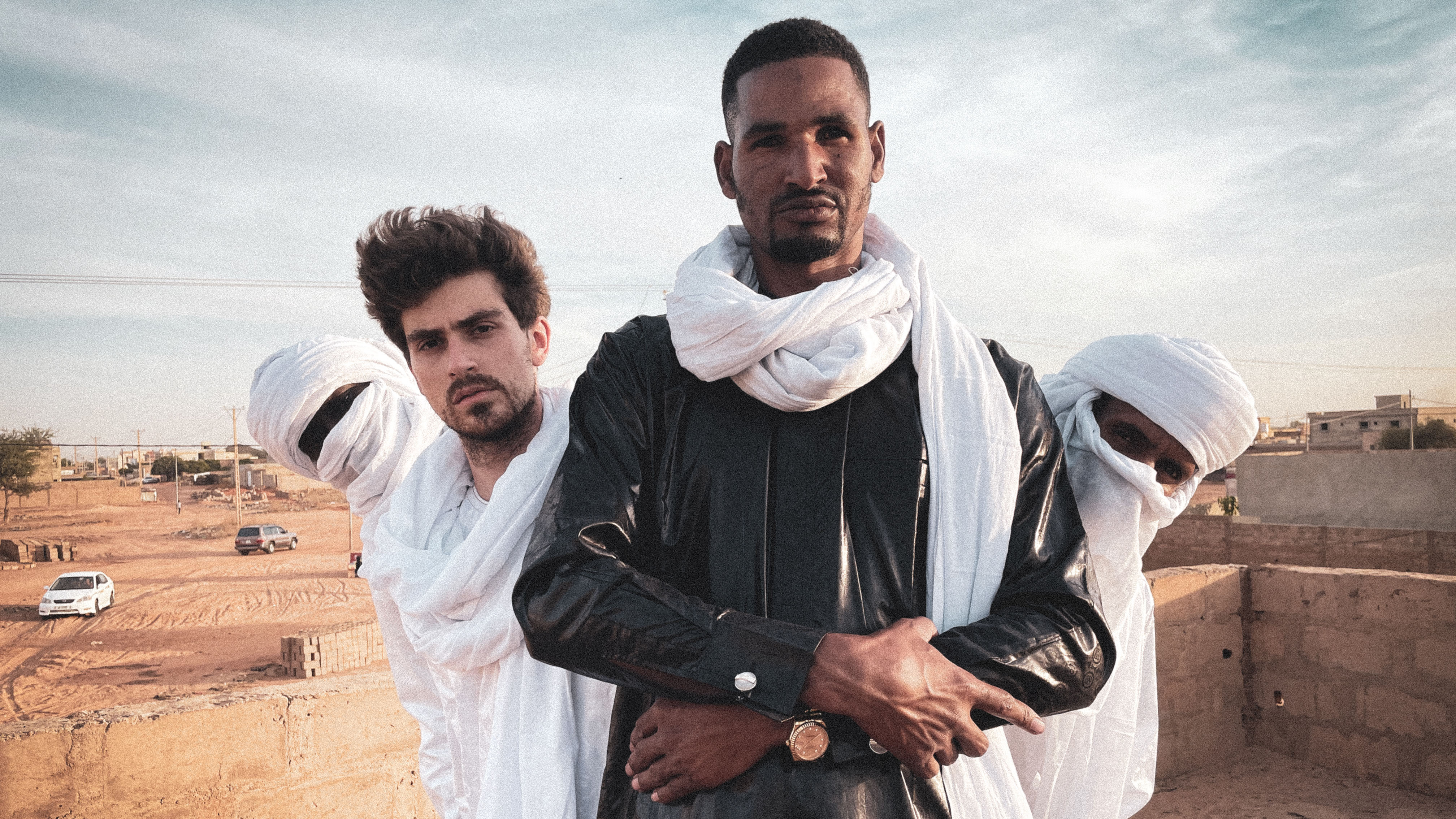
You can't even buy strings in the country
You’ve undertaken a lot of activities to support other musicians from your local area. What are the limitations young musicians in Niger are facing?
“So, as regards young musicians, I think the key thing is just giving them gear to play with – just instruments, you know? Decent guitars. And the only way to get that in Niger is for someone who's travelling to bring it back. You can't even buy strings in the country. And the second thing is, we don't have any music schools here. So you need all these things.
"And regarding the music schools, it is not so much the teachings, but I would say what is key is mostly to have a place where they would be allowed to meet and be free to express themselves artistically in whatever way they want. It's quite hard to do that in Niger on a daily basis. You have to go and play and practice in the desert and then after the after that you have to head home. That's how we do it. [Both because music can be frowned upon but also because terrorists have been aiming for groups of people outside] So yeah, they really need a place to play with sophisticated instruments.”
It can be difficult to meet like-minded players in any environment, let alone in those circumstances. How did you meet co-guitarist Ahmoudou Madassane?
“We grew up in neighbouring villages. And every time there would be school holidays, he would come and stay at my place. And we will play together. So that's how we met. I've always thought he was very talented, even as a young artist, and he always had a strong passion for music.
“At that time, when we grew up a little, I started becoming a bit more experimental than him. I had already done my first album, whereas he had left the village to study. So I started to have a bit of a name for myself, then I kind of knew the business a bit more. And I was able to acquire an acoustic guitar for him. So I gifted him his first guitar. And then around 2009 I moved to Agadez, because it was much easier for me to play music there and eventually he also moved there.
"With time, him, and other artists would come to my house and we would always eat together and spend some time and they could use my house to practise if they wanted to, so there was constantly music, where I lived. Then we started doing wedding concerts together a lot. And then it all progressed to how things are today.”
In this latest album, Afrique Victime, we’ve developed some really complex pieces together. We’re not necessarily playing in the ranges that you would expect
How would you describe your playing relationship with Ahmoudou? Where do we hear your respective styles?
“Usually I’m the one who sets the rhythm with the guitar. And then Ahmoudou will follow. And in particular, in this latest album, Afrique Victime, we’ve developed some really complex pieces together. We’re not necessarily playing in the ranges that you would expect, so it took a bit more time for us to learn how to do that. But we understand each other really well, which is very helpful.
"Ahmoudou picks up extremely fast on things, which is why I feel so at ease with him. I feel very free to be able to play whatever I want and I know that Ahmoudou will be able to follow. Whereas when I play with other artists, I might play in more easily predictable ways because I’m afraid that the other person will get off rhythm or not really expect it.”
What tips do you have for readers who are more used to traditional rock styles and trying to learn and understand Tuareg guitar styles?
“My main advice is not necessarily about specific techniques. I feel that a lot of young people today are very eager, and in a rush to become known fast. Some people think that after they start playing for a month or two they are ready to be Eddie Van Halen, or Jimi Hendrix, and go play concerts. But I feel that you have to really take the time to create your own style and your own songs – and that involves hard work. It's not the right vision if you're trying to rush it.
"It's really the work that pays off and the work that's going to help you create extraordinary things. So my main advice is to have patience and take it slow.”
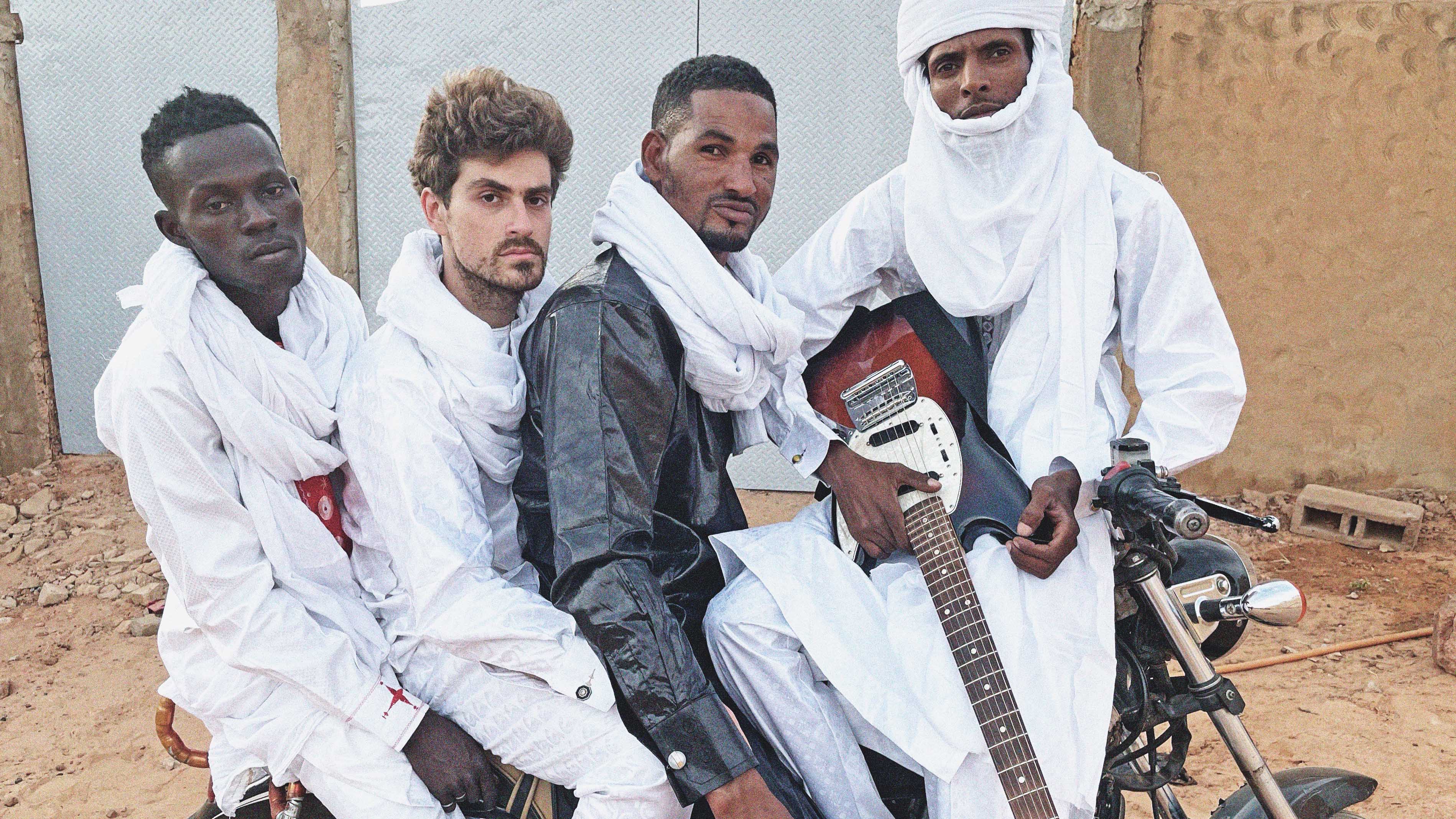
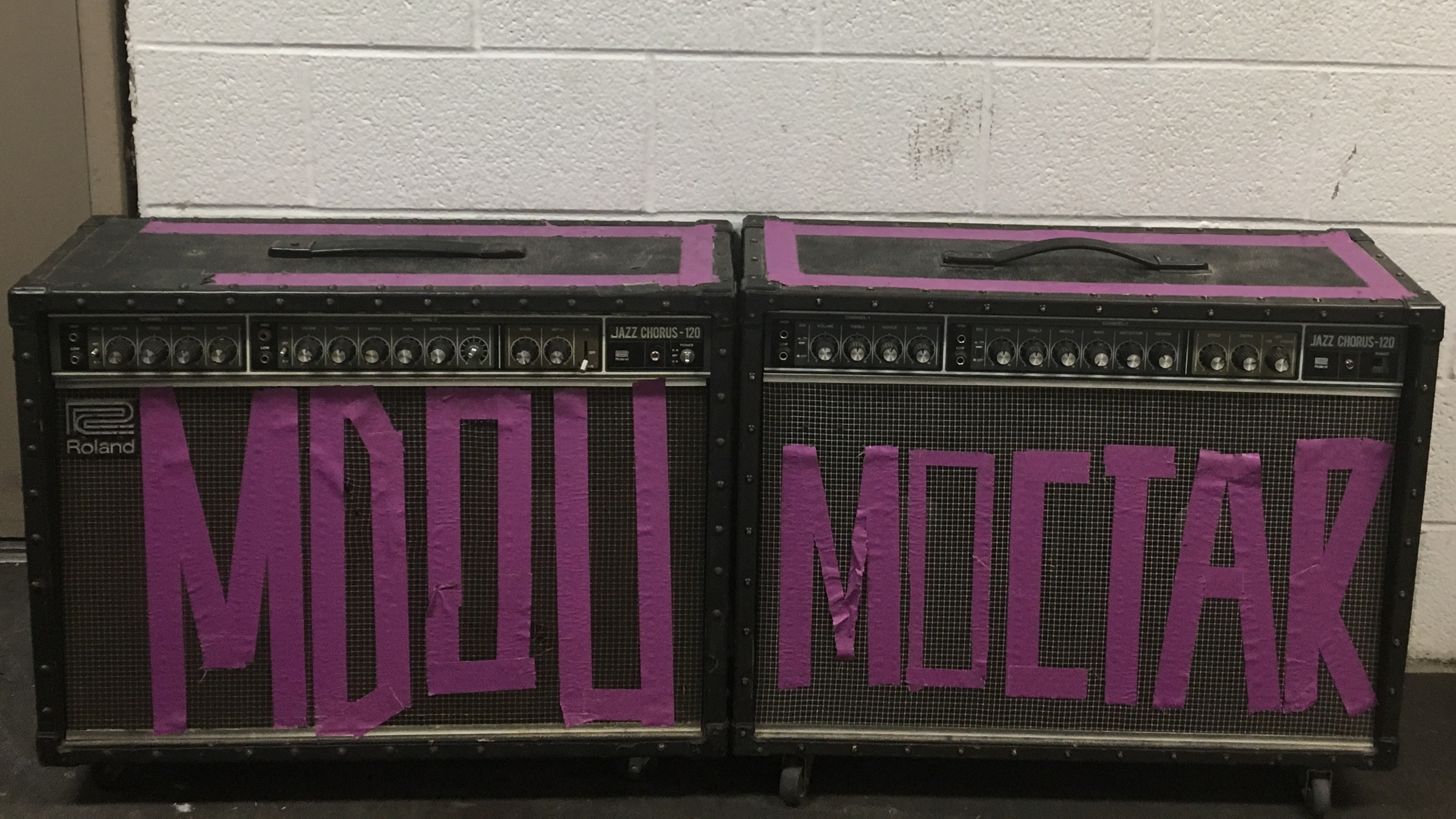
Guitars: (white) left-handed Fender American Strat, (black) left-handed Fender American Strat, CME (Blue) left-handed Fender Jaguar
Amps: 2x Roland JC-120s (a Boss DD-6 is used for a slight ping delay between the two)
Pedals: D'Addario CT-20, TC Electronic Polytune 2, Boss PH-3, Earthquaker Devices Acapulco Gold, Rocktar Fuzz Pedal, Boss DD-6
You famously built your first guitar yourself. Are you still prone to tweaking or experimenting with the builds of your instruments and equipment?
“Actually, when I was when I was a child, the main reason why I built my guitar was not really for fun, but just because I didn't have a choice: it was a need. Today, I don't have that need and I'm really glad that I have access to all the different styles of guitar that I might like. When I'm trying to get a specific sound with my guitar, I do experiment [but with my pedals]. I always carry with me all the different types of pedals that I have and I’ll use my hands to tweak the pedals. I experiment a lot with that.”
What were the main guitars used on Afrique Victime? How would you describe their sound and character?
“It’s hard for me to answer this question. I don't really know [the terminology]. I definitely can say that I have a white Standard Stratocaster for the electric parts. And then I have this other acoustic guitar, which I bought in New York, but I can't for the life of me remember it because it's got very weird name! And that's the one I use for Layla. For the song, Layla and Tala Tannam.”
[At this point we hit the limit of our combined abilities in communicating the terminology across the language barrier and agree to get an email update on his gear list, which you can check out on the right]
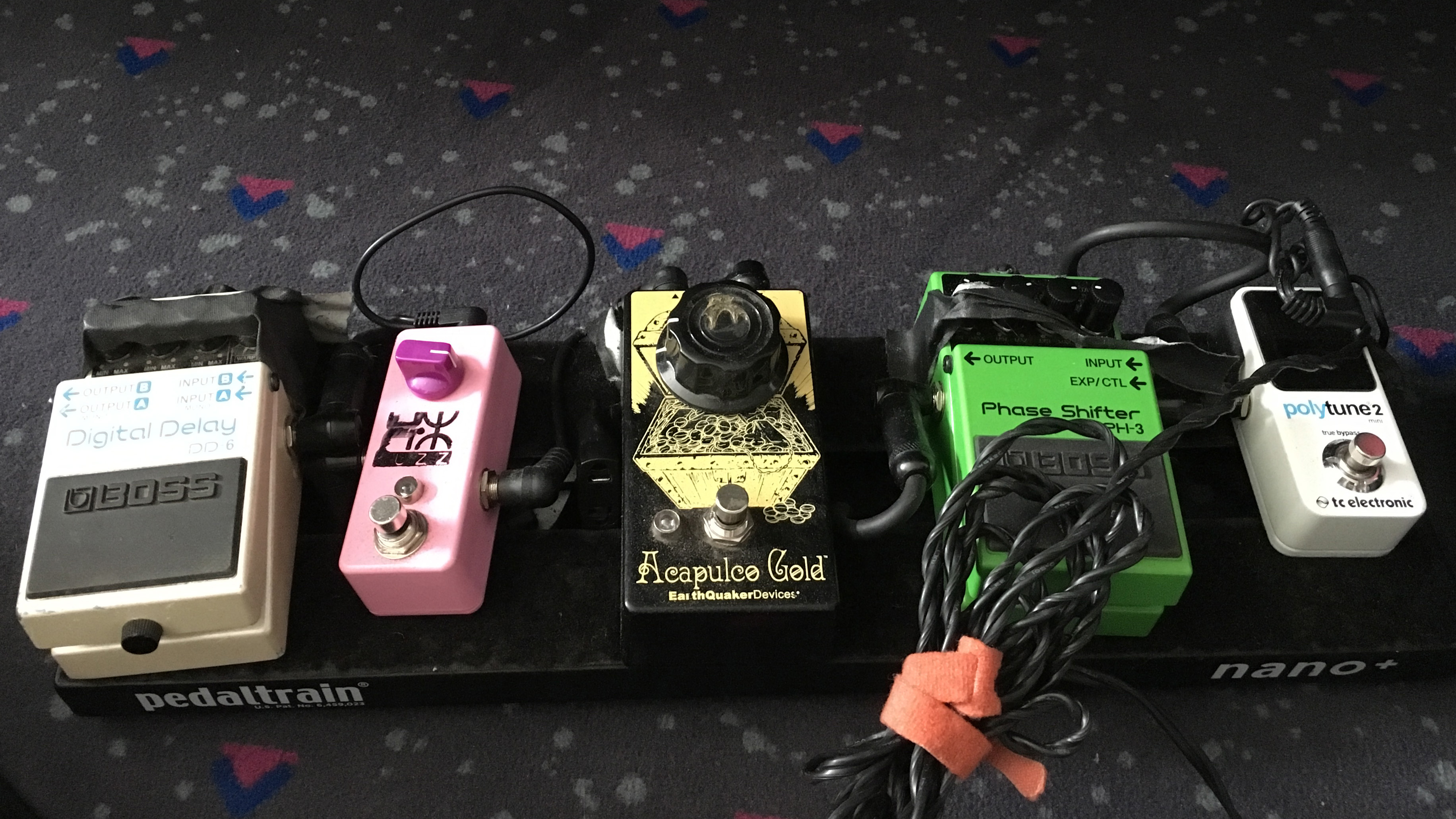
I don't even know the names of the different styles of music. So for instance, the words 'jazz' and 'rock', don't mean much to me
Which of the new songs are you most proud of, in terms of your playing? I loved Afrique Victime – that guitar solo feels like a real statement.
“Each piece really has its own value in the way I compose it, not necessarily because they're more technical. They all have a good reason for existing and people can pick whatever style they prefer. There's definitely a few interesting solos on the album and in the track Afrique Victime, specifically, there's that long solo, which you picked up on, where I'm really trying to transmit what I feel is deep inside of me.
"Really it's a solo where my intention is for the guitar to be spitting out the sound of revolution. Then in the songs that are more focused on feelings of love, those are some simpler solos, that are a bit softer, maybe. I want people to understand that the feeling is a bit calmer, when they're listening.”
Rock music’s initial principles have long been confused with a culture of drink and drugs or nihilism. As a practising Muslim, what is it you identify with in rock music that feels enduringly true to your values and lifestyle?
“You know, to be very honest with you, I don't even know the names of the different styles of music. So for instance, the words 'jazz' and 'rock', don't mean much to me. My music has been described that way after people have heard it and commented on it. That's what I can make out. But regarding alcohol and drinking, it seems to me that stimulants have absolutely nothing to do with music. It's just people who are making themselves suffer for nothing. So, yeah, it's completely unrelated!
“I think sometimes people may believe that they play better when they're high but apart from that, it sounds to me that, you know, some people have the privilege of spending large amounts of money to go to music school, whereas other rich people seem to be paying a lot to be ill, or go crazy. That’s how it seems to me. So again, yeah, I think what really pays off in music is practising and hard work. The drugs and alcohol part seems crazy to me…”
Mdou Moctar's Afrique Victome is released on 21 May via Matador. For more info visit mdoumoctar.bandcamp.com
Matt is a freelance journalist who has spent the last decade interviewing musicians for the likes of Total Guitar, Guitarist, Guitar World, MusicRadar, NME.com, DJ Mag and Electronic Sound. In 2020, he launched CreativeMoney.co.uk, which aims to share the ideas that make creative lifestyles more sustainable. He plays guitar, but should not be allowed near your delay pedals.
“Its mission is simple: unleash the power of any amplifier or line-level source without compromise”: Two Notes promises a “watershed” in tube amp control with the Torpedo Reload II
MusicRadar deals of the week: Enjoy a mind-blowing $600 off a full-fat Gibson Les Paul, £500 off Kirk Hammett's Epiphone Greeny, and so much more










